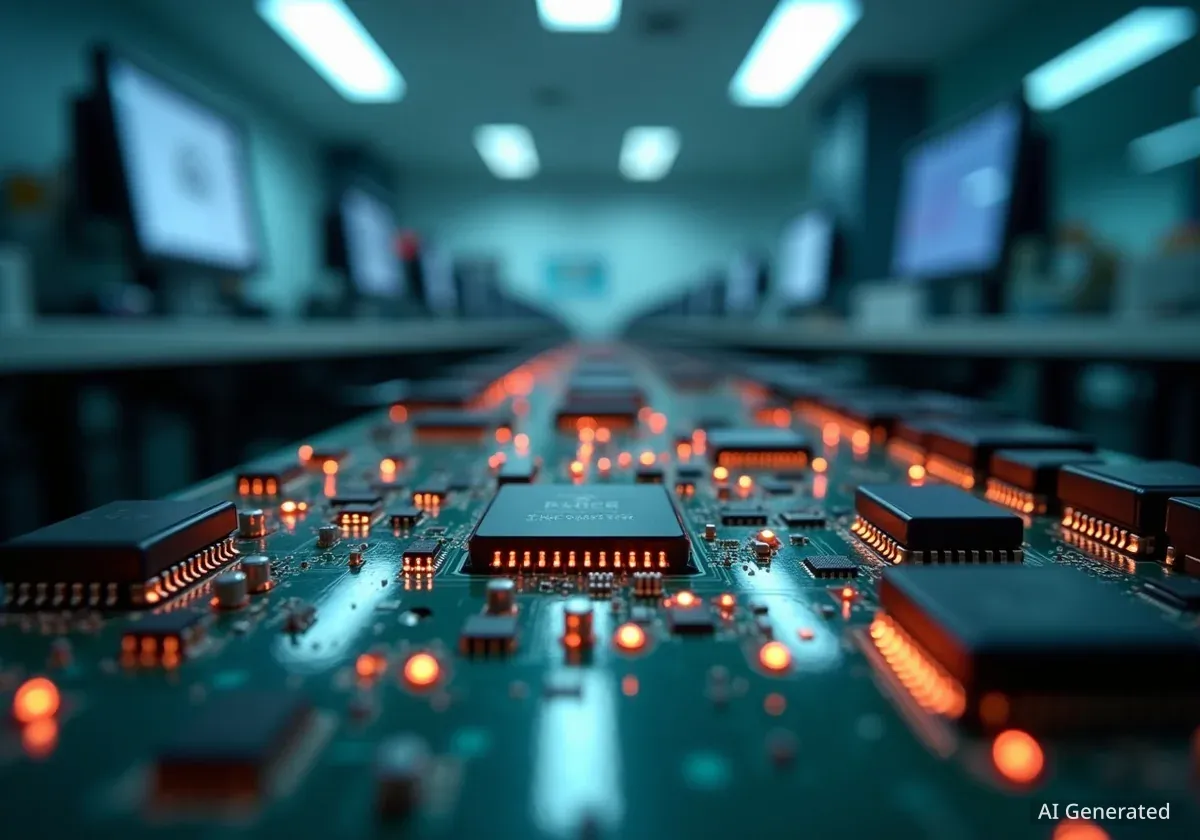Li Haoran, a promising 28-year-old Chinese researcher at Princeton University, passed away last week. He was found deceased at his home in West Windsor, New Jersey, on Thursday. The university confirmed his death in an official statement issued on Friday. No immediate details regarding the cause of death were released.
Li was recognized for his significant contributions to the fields of AI-powered electronics and machine learning. His untimely death has caused shock among academic circles and online communities in both the United States and China.
Key Takeaways
- Li Haoran, a 28-year-old Princeton researcher, died last week.
- He was a pioneer in AI-powered electronics and machine learning.
- His death has deeply affected academic communities globally.
- Li's research focused on improving magnetic materials using machine learning.
A Distinguished Academic Career
Li Haoran demonstrated exceptional talent early in his academic journey. He completed his undergraduate studies at Tsinghua University, a top institution in China. Following this, he joined Princeton University, where he pursued advanced degrees.
He earned his master’s degree in 2021 through the Princeton Power Electronics Research Lab. Most recently, Li completed his PhD in electrical and computer engineering. He had successfully defended his doctoral dissertation prior to his death.
Fact File: Li Haoran
- Age: 28
- Education: Tsinghua University (Bachelor's), Princeton University (Master's, PhD)
- Field: AI-powered electronics, machine learning, power electronics
- Affiliation: Princeton University, Andlinger Centre for Energy and the Environment
Pioneering Research in Machine Learning
Despite his young age, Li Haoran had already made notable advancements in his field. His research focused on interdisciplinary innovations, specifically applying machine learning to enhance magnetic materials. This work was considered pioneering.
His academic contributions received international recognition. In 2023, Li was awarded the First Place Prize Paper Award by IEEE Transactions on Power Electronics (TPEL). This is a significant achievement, as IEEE TPEL publishes only about 1,000 papers out of thousands of annual submissions.
"Li Haoran was an exceptional talent in the field of power electronics and machine learning," a university statement highlighted, acknowledging his significant contributions.
Impact and Community Response
The news of Li Haoran's death has resonated strongly, particularly in China. It became a trending topic on social media platforms, where users expressed profound sadness and mourning. Many users acknowledged the loss of a brilliant young mind.
His passing is the latest in a series of tragedies involving Chinese students and academics at elite institutions in the United States. This trend has garnered significant attention and concern within the Chinese community.
Background on Princeton University
Princeton University, located in Princeton, New Jersey, is one of the oldest and most prestigious universities in the United States. It is a private Ivy League research university known for its strong programs in engineering, humanities, and natural sciences. The university attracts top talent from around the world, fostering a highly competitive and innovative academic environment.
Li's Professional Affiliations
According to his professional profile, Li Haoran had recently joined the Andlinger Centre for Energy and the Environment. This center at Princeton University is dedicated to addressing global energy and environmental challenges through research and education.
His involvement with such a center underscored his commitment to applying advanced technological solutions to critical global issues. His work on magnetic materials, for example, could have wide-ranging applications in energy efficiency and sustainable technologies.
The Role of Machine Learning in Materials Science
Li's research leveraged big data and machine learning algorithms to model and predict the properties of magnetic materials. This approach allows for faster discovery and optimization of new materials with desired characteristics. Such innovations are crucial for developing more efficient electronic devices, renewable energy systems, and advanced computing components.
The ability to accurately model materials through computational methods significantly reduces the need for extensive physical experimentation. This accelerates the pace of scientific discovery and technological development.
Future Implications
The loss of a researcher like Li Haoran represents a setback for the fields he contributed to. His unique interdisciplinary approach combined electrical engineering with cutting-edge machine learning techniques. This combination is increasingly vital for future technological progress.
His work on power electronics and magnetic materials had the potential to influence various industries. These include consumer electronics, electric vehicles, and renewable energy infrastructure. The academic community will continue to honor his memory and the impact he made in his short but impactful career.
The university community and his peers remember Li for his intellect, dedication, and the bright future he had in scientific innovation. His contributions, though cut short, will remain a part of the ongoing advancements in AI-powered electronics.





